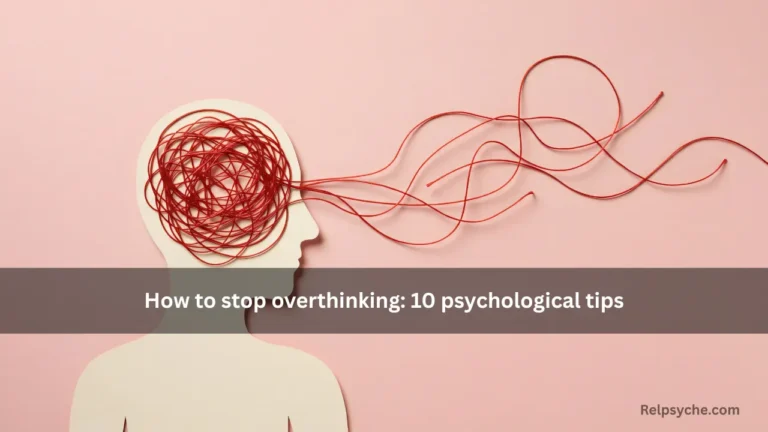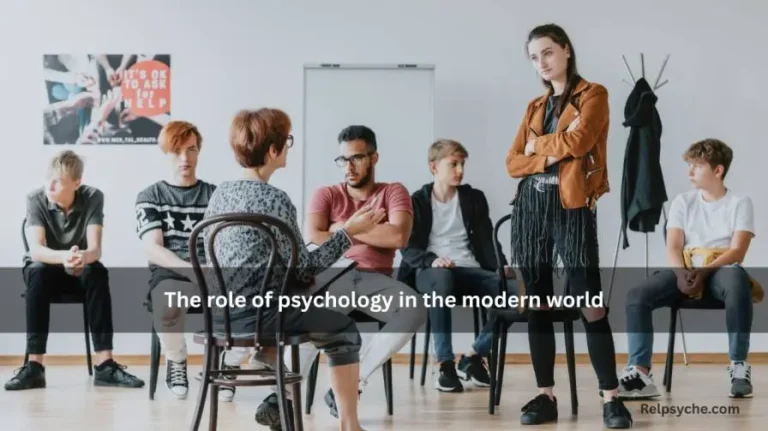Experimental Psychology Society: History and Role
Psychology is often misunderstood as merely talk therapy or common sense. In reality, it is a robust science built on careful experimentation, data collection, and statistical analysis. The organization dedicated to maintaining this high standard of scientific rigor, particularly in the United Kingdom and internationally, is the Experimental Psychology Society (EPS).
The Experimental Psychology Society is the oldest learned society in the world devoted solely to the scientific study of psychology. It serves as a crucial hub for researchers—from students to senior academics—who focus on the fundamental mechanisms of the mind, such as memory, perception, attention, and language. Its mission is to advance psychological science and promote the exchange of new research findings.
This article will explore the deep history of the Experimental Psychology Society, detail its core functions, explain the importance of its academic journal, and highlight how this society remains central to the future of experimental research in cognitive psychology.
Table of Contents
1. A Century of Scientific Foundation: The History of the EPS
The Experimental Psychology Society has deep historical roots, originating at a pivotal time when psychology was transitioning from philosophy into a recognized, empirical science.
From Informal Meetings to Formal Society:
- The Origins (Early 20th Century): The Society traces its roots to informal gatherings of British experimental psychologists in the 1920s. These researchers—primarily academic staff from universities—began meeting to discuss their latest findings, critique research methods, and foster collaboration.
- Formal Establishment (1946): The EPS was formally constituted shortly after World War II in 1946. This was a crucial period for scientific development, and the formal organization helped stabilize and professionalize the discipline across British universities.
- The Goal: The primary goal from the start was to create an environment where high-quality experimental work could be presented and critically discussed in a supportive yet rigorous setting. The focus was always on the data and the method, not just the theory.
This historical focus on the scientific method is what sets the Experimental Psychology Society apart and ensures its enduring legacy in British and global academia.
2. Core Mission and Membership of the EPS
The Experimental Psychology Society operates on a highly selective and focused model, emphasizing quality and contribution to the field rather than sheer volume of membership.
Key Functions and Activities:
- Meetings and Symposia: The EPS holds three major scientific meetings annually across various UK university centers. These meetings are the society’s central mechanism for fulfilling its mission. They are renowned for their highly concentrated format, featuring brief oral presentations followed by extensive, critical discussion.
- Value Proposition: These meetings are not large conferences; they are focused, smaller gatherings that allow researchers to get deep, honest feedback on emerging work before it is published.
- The Journal (Quarterly Journal of Experimental Psychology – QJEP): The Society owns and publishes the Quarterly Journal of Experimental Psychology (QJEP). This is a highly respected, peer-reviewed journal essential for the publication of fundamental research in areas like attention, memory, executive functions, and learning.
- Impact: The QJEP ensures that research supported by the Experimental Psychology Society meets the highest standards of scientific evidence.
- Grants and Awards: The EPS actively promotes new research through various schemes:
- Postgraduate Awards: Grants that allow Ph.D. students to attend meetings and present their first research findings.
- Grants-in-Aid: Funding for researchers to purchase necessary equipment or support experimental costs.
- Visiting Fellowships: Supporting international researchers to visit UK institutions, fostering global collaboration.
Membership Criteria:
Membership in the Experimental Psychology Society is highly prestigious and is typically granted to established researchers who have already made significant contributions to experimental psychology. It is based on peer nomination and demonstrated productivity through publications in top-tier journals. This selectivity guarantees the quality of the scientific dialogue within the society.
3. The QJEP: A Cornerstone of Cognitive Science
The Quarterly Journal of Experimental Psychology (QJEP) is arguably the most recognizable and lasting contribution of the Experimental Psychology Society. Its role in shaping the field of cognitive psychology cannot be overstated.
The Role of the QJEP in the Scientific Process:
- Rigorous Peer Review: Submissions to the QJEP undergo an extremely rigorous peer-review process. This means other leading experts in the field carefully scrutinize the research design, methods, and statistical analysis before publication. This process ensures the validity and reliability of the findings.
- Focus on Fundamentals: Unlike applied journals, QJEP focuses on basic, fundamental science. For example, a paper might investigate how the brain retrieves complex episodic memories, rather than how a specific therapy works in a clinical setting. This focus on core mechanisms is vital for building lasting scientific knowledge.
- Promoting Replication: The journal—and the EPS meetings—place a high value on replication studies, where researchers try to reproduce the results of published findings. This is a crucial, healthy part of the scientific process, ensuring results are robust and not based on chance.
💡 Real-World Impact: A groundbreaking finding published in QJEP about how attentional filtering works may not seem immediately practical, but it eventually forms the basis for creating safer interfaces for pilots, better driver safety warnings, and more effective educational materials.
4. The EPS and the Future of Experimental Psychology
As technology evolves, the challenges facing psychology researchers change, but the mission of the Experimental Psychology Society remains constant: to uphold scientific standards.
Addressing Modern Challenges:
- Open Science: The EPS strongly advocates for Open Science practices. This includes making research data and materials publicly available so that other scientists can check and replicate the work. This increases transparency and trust in psychological research.
- Interdisciplinary Research: The society encourages collaboration between psychology and related fields like neuroscience, computer science, and linguistics. For example, EPS meetings frequently feature research that uses advanced techniques like fMRI (functional Magnetic Resonance Imaging) or EEG (Electroencephalography) to measure brain activity alongside behavior.
- Mentorship: The Society’s network provides essential mentorship. Senior members guide younger researchers on designing sound experiments, avoiding methodological flaws, and writing clear, concise scientific reports—a core skill necessary for any new scientist.

Conclusion
The Experimental Psychology Society may not be as publicly visible as some large professional associations, but its influence on the quality and direction of research is immense. By maintaining a highly selective membership, hosting focused scientific meetings, and publishing a flagship journal devoted to fundamental science, the EPS ensures that the study of the mind remains firmly rooted in the scientific method. For anyone pursuing a career in cognitive science or academic psychology, the EPS represents the gold standard of scientific rigor and dedication.
Ready to take the next step in your personal growth? Explore expert services — from therapy to life coaching — available on Fiverr.
If you want to read more articles similar to Experimental Psychology Society: History and Role, You Need to Know we recommend that you enter our Psychology category.
FAQs
1. What is the main mission of the Experimental Psychology Society?
The main mission of the Experimental Psychology Society is to advance scientific knowledge in experimental and cognitive psychology by facilitating the communication of new research, promoting rigorous methodology, and supporting the training of future researchers.
2. Is the Experimental Psychology Society open to all psychologists?
No. Membership in the Experimental Psychology Society is highly selective and primarily limited to established researchers and academics who have already demonstrated significant, publishable contributions to the field of experimental psychology.
3. What is the Quarterly Journal of Experimental Psychology (QJEP)?
The QJEP is the prestigious, peer-reviewed academic journal owned and published by the Experimental Psychology Society. It is a leading platform for publishing high-quality, fundamental research into human cognition, such as attention, memory, and perception.
4. How often does the Experimental Psychology Society meet?
The Experimental Psychology Society typically holds three focused scientific meetings each year. These gatherings are central to the society’s function, providing intimate settings for critical discussion and rigorous review of cutting-edge research.
5. Why is the EPS considered important in cognitive science?
The EPS is crucial because it insists on the highest standards of empirical evidence and scientific rigor. By focusing on fundamental mechanisms and demanding robust methodologies (often discussed at their meetings), it provides the essential scientific bedrock for all areas of cognitive science.
References
- The Experimental Psychology Society (Official Website): For primary source information on history, governance, and grant schemes.
- Taylor & Francis Online: Publisher of the Quarterly Journal of Experimental Psychology (QJEP).
- American Psychological Association (APA): For context on the general evolution and academic standards of psychological science.
- British Psychological Society (BPS): For broader context on psychology governance and professional ethics in the UK.

I’m Emma Johnson, a psychologist who loves to write and share ideas.
I enjoy making psychology simple so everyone can understand and use it in daily life.
If you’d like to talk, ask questions, or work together, feel free to reach out.
Let’s learn and grow in the world of psychology together!







